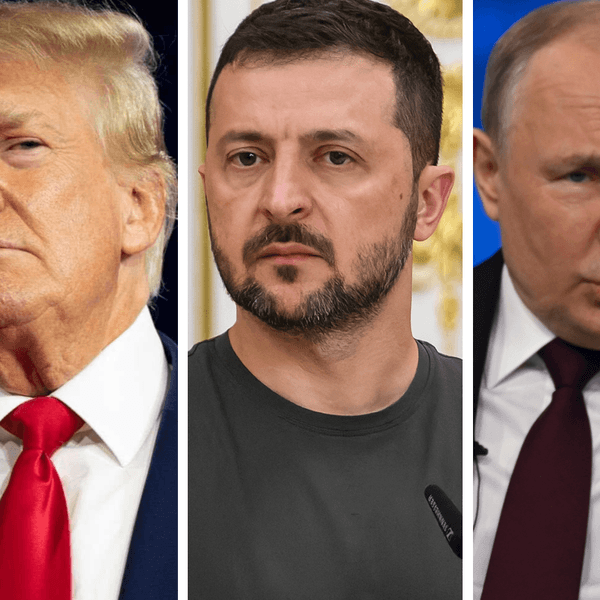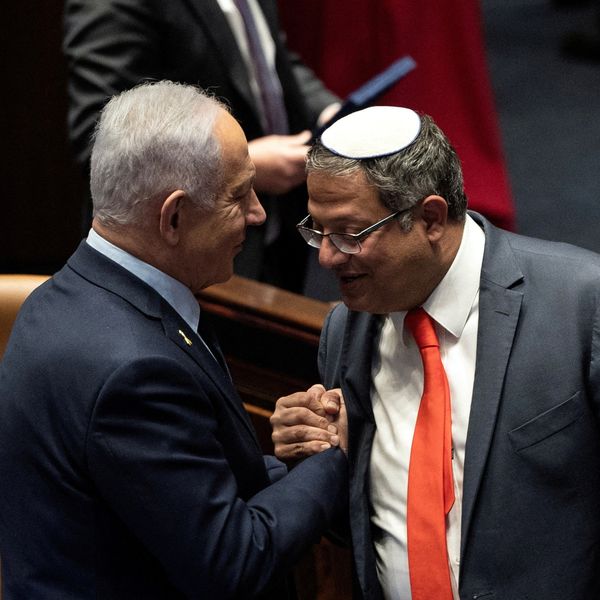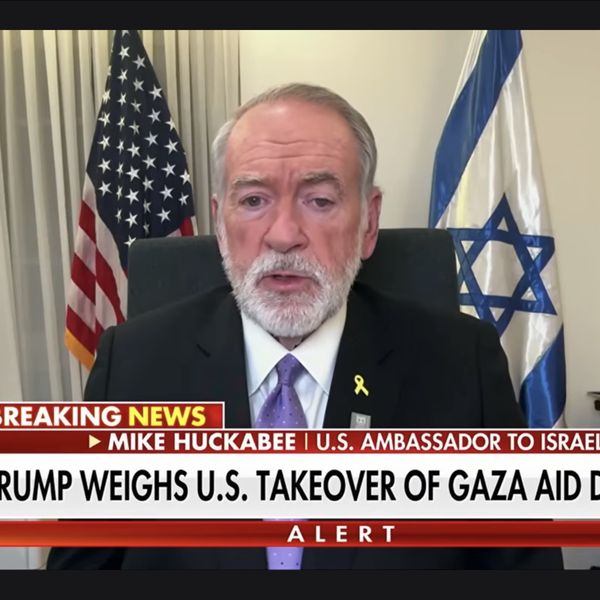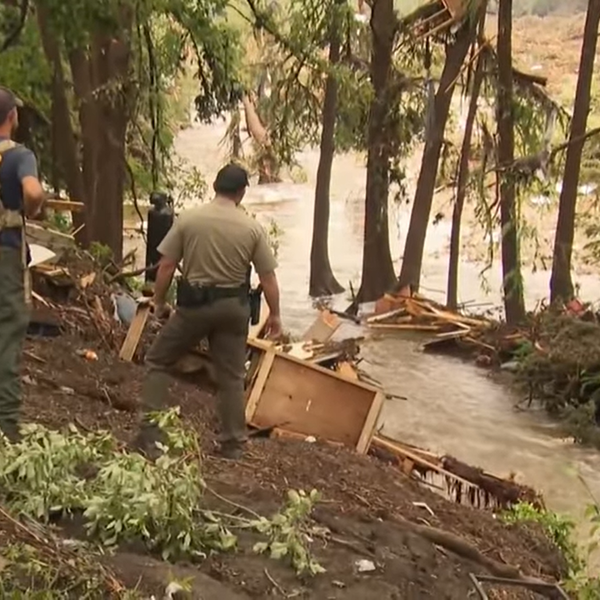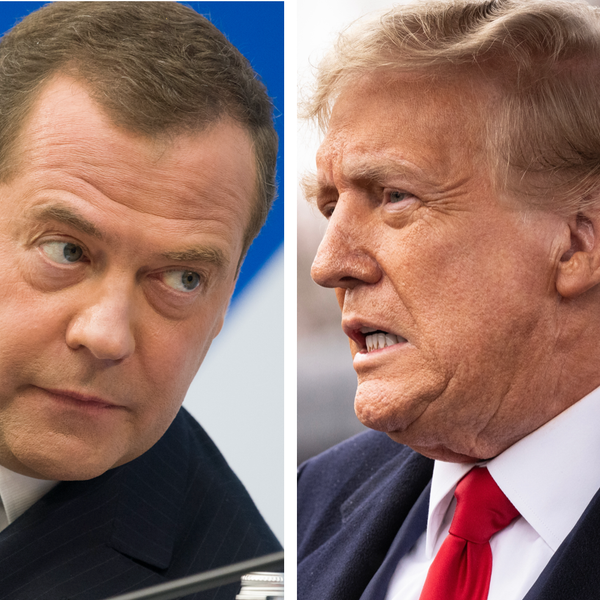Russia’s summer offensive against Ukraine is heating up.
Russia has amassed over 50,000 troops near the eastern Ukrainian city of Sumy, the site of a major Russian attack back in April. Ukrainian forces claimed last week that they had halted Russia’s advance there.
Making gains in Ukraine’s Kharkiv and Zaporizhzhia regions, meanwhile, Russia also advanced into Ukraine’s Dnipropetrovsk region for the first time, taking a village there Sunday. Russia is also gaining ground in eastern Pokrovsk, a city in Ukraine’s Donetsk region.
Most notably, Russia claims it has fully captured eastern Ukraine’s Luhansk region, which if true, it would be the first Ukrainian region completely under Russian control since the war began. Some Russian reporters, however, observed that villages there remain in Ukrainian hands.
Experts say Russia sees a strong military position as critical to successful negotiations. This was apparent in Vladimir Putin's phone call with Donald Trump on Thursday, when he told the American president that Russia won't back down until its original objectives, to address the "root causes" of the conflict, are met.
“There’s a better chance for Russia to come to some kind of terms with Ukraine” during the fall when they see the “extent of their gains.” Sergey Radchenko, a Russian-British military historian at Johns Hopkins School of Advanced International Studies, told Washington Post.
In this respect, Russian control over Ukraine’s separatist regions — Donetsk and Luhansk, which voted to split from Ukraine back in 2014, during the Euromaidan — is a priority to Russia. (Ukraine, the EU, and the U.S., deeming that vote illegitimate and hastily organized, did not recognize the split). Moscow claimed to have formally annexed these territories in September 2022, months after the Ukraine war began; Ukraine, Western countries, and the UN rejected the annexations as illegal.
“It was always true that Russia would seek to conduct peace talks from what it considers to be a satisfactory battlefield state. Part of that state is full Russian control over Dontesk and Luhansk, the two eastern regions where the separatist conflict began after 2014,” Mark Episkopos, a research fellow in the Quincy Institute's Eurasia Program, told RS.
But, while Russia favors full control over other sought-out territories Russia annexed in 2022 — namely, Ukraine’s Kherson and Zaporizhzhia regions, Episkopos says that’s likely not as critical for successful peace negotiations.
“There is reason to believe that the Kremlin has a great deal more flexibility when it comes to [the jurisdiction over] the other two regions, Kherson and Zaporizhzhia, which it annexed in 2022 and does not fully control,” he said. “The Kremlin has subtly left the door open to delimitating these territories in a way that does not include land controlled by Ukraine.”
And while Moscow strikes, Kyiv is without critical supplies. Washington has decided to withhold previously promised weapons — including key air defense missiles — as it is running low on its own stockpiles.
Washington’s decision has caused a panic in Kyiv, prompting Ukraine’s Foreign Ministry to summon the top official from the U.S. Embassy there. “Any delay or slowing down in supporting Ukraine's defense capabilities would only encourage the aggressor to continue war and terror, rather than seek peace,” Mariana Betsa, the deputy foreign minister of Ukraine, said.
And Russia overtook a key lithium reserve in eastern Ukraine late last week, perhaps putting the previously highly sought out minerals deal, intended to ensure the U.S. had a continued stake in peace negotiations, at risk. Although, a Ukrainian investor told Ukrainian media publication Kyiv Independent it wouldn’t jeopardize negotiations relevant to that deal.
Jennifer Kavanagh, senior fellow and director of military analysis at Defense Priorities, said Washington’s "crickets" regarding Russia’s capture of the key Ukrainian lithium reserve suggests that it has lost interest — as Kyiv loses ground. “With Ukraine on the ropes and the United States focused elsewhere, Putin seems in command of the war’s tempo,” she wrote.
All matters considered, former UK military intelligence officer Frank Ledwidge told France 24 that Russia’s success on the front lines suggest the conflict isn’t going Kyiv’s way.
“The center of gravity for this war is the grinding, attritional battle at the front. It's not these special forces operations. It never is in war. It's not these single strikes,” Ledwidge said. “The center of gravity is manpower. It's casualties, it's attrition. And Ukraine is at the wrong end of that right now.”
In other Ukraine war news this week
On Tuesday, French President Emmanuel Macron and Russian President Vladimir Putin spoke over the phone for the first time in nearly three years. During the two-hour call, Macron called for a ceasefire, and for relevant negotiations toward one. According to Reuters, the Kremlin Press service reported that Putin stressed Iran’s right to nuclear energy during the call — so long as it remains compliant with relevant nuclear nonproliferation treaty obligations.
Mikhail Gudkov, deputy commander in chief of the Russian Navy, was killed Tuesday “during combat work” in the border area of Russia’s Kursk region. Reuters reported the news, citing a Russian military statement, but could not independently verify how Gudkov was killed.
Ukrainian drones attacked the Russian city of Izhevsk on Tuesday, according to the Guardian, killing three people and wounding dozens more.
Russia launched over 537 aerial weapons on June 29, including drones and drone decoys, and missiles at Ukraine. Most of these weapons were either shot down or otherwise lost, probably because they were electronically jammed. Still, Yuriy Ihnat, head of communications for Ukraine’s air force described the attack to AP as Russia’s “most massive airstrike” against Kyiv since the war began.From State Department Press Briefing July 2
State Department Spokesperson Tammy Bruce downplayed news regarding Washington’s withholding of weapons shipments from Ukraine in a press briefing Wednesday.
“We haven’t paused sending weapons to Ukraine,” she said. “As you heard from the DOD, there are multiple robust other options and efforts regarding the Ukrainian situation with weapons.”
‘The President has also indicated his remaining commitment regarding Patriot missiles. This is not – I will reinforce this – this is not a cessation of us assisting Ukraine or of providing weapons. This is one event in one situation, and we’ll discuss what else comes up in the future. But be wary of painting too broad a brush there.”







